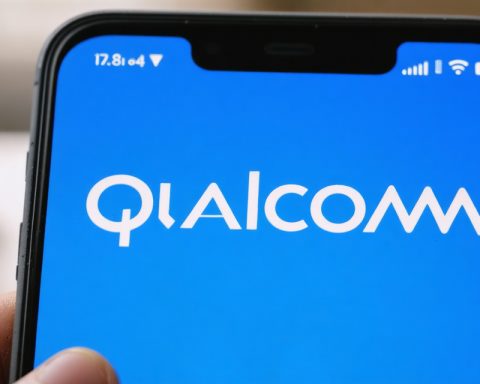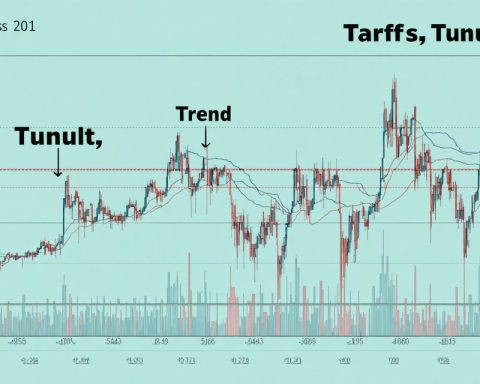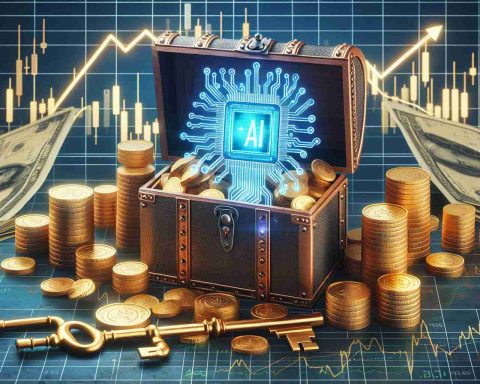- The rise of DeepSeek has significantly impacted Nvidia’s market value, creating investor anxiety regarding competition in the AI sector.
- DeepSeek’s chatbot development costs are substantially lower than those of established competitors like OpenAI, raising questions about the future of AI pricing and innovation.
- Some analysts suggest Nvidia’s stock decline may be temporary, yet concerns exist regarding its sustained dominance in the competitive AI landscape.
- Alphabet is experiencing stock stagnation despite its AI advancements, with analysts believing the company’s potential is undervalued.
- The ongoing AI competition may lead to increased demand for processing power, influencing market dynamics moving forward.
The sudden rise of DeepSeek, a small Chinese AI company, sent shockwaves through the U.S. stock market, particularly affecting tech giants like Nvidia. In a stunning turn of events, Nvidia saw its market cap plunge by approximately $600 billion in a single day. Why? Investors are anxious over whether DeepSeek’s cheaper AI solutions threaten Nvidia’s dominance.
DeepSeek claims to have developed a chatbot competitive with industry leader ChatGPT, boasting a minuscule training cost of merely $5.6 million using older Nvidia chips. In stark contrast, OpenAI reportedly invested over $100 million for similar capabilities. This raises eyebrows across the tech community, igniting debates about the efficacy and quality of DeepSeek’s innovations.
While many analysts believe Nvidia’s decline is a temporary overreaction, others are concerned about potential cracks in its stronghold. One analyst noted that advancements from companies like DeepSeek might actually fuel a greater demand for processing power, suggesting that the AI landscape could require even more robust solutions down the line.
In a parallel narrative, Alphabet has also felt the tremors from DeepSeek’s emergence. Still facing legal scrutiny and questionable pricing practices, Alphabet’s stock is stagnating despite its strong AI capabilities through its data center chips and DeepMind unit. Analysts argue that Alphabet’s AI potential isn’t fully appreciated among investors.
Takeaway: As the AI race heats up, consider buying Alphabet over Nvidia for potentially better value, especially at its current forward earnings ratio. While Nvidia might rebound, the uncertainty surrounding its long-term moat remains. AI innovation is changing the game—but who will emerge victorious?
Is DeepSeek the Game-Changer that Will Disrupt the AI Market?
The Rise of DeepSeek: A New Contender in AI
The rapid emergence of DeepSeek, a relatively small AI company from China, has injected a wave of uncertainty into the stock market, particularly impacting tech giants such as Nvidia. Nvidia’s market capitalization witnessed a staggering decline of about $600 billion in just one day, raising concerns among investors about the company’s position in the competitive landscape of artificial intelligence.
DeepSeek claims to have launched an AI chatbot that rivals industry standards, namely OpenAI’s ChatGPT. What makes this claim provocative is the drastic difference in training costs. DeepSeek invested a mere $5.6 million using older Nvidia hardware, while OpenAI has reportedly spent over $100 million to develop similar capabilities. This disparity is not only casting doubt on the quality and effectiveness of DeepSeek’s technology but also poses a direct challenge to Nvidia’s supremacy in the market.
Features and Innovations of DeepSeek
– Cost-Effective Solutions: DeepSeek’s low-cost training methods could potentially lower barriers to entry for businesses looking to develop sophisticated AI applications.
– Competitive Technology: The company’s claim to have developed technology that rivals ChatGPT raises intriguing questions about innovation in the AI sector.
– Scalability: With AI demand rapidly increasing, DeepSeek could enable more companies to adopt AI technologies, potentially expanding the market for processing power.
Pros and Cons of DeepSeek’s Emergence
Pros:
– Potential democratization of AI technology with affordable solutions.
– Increased competition could drive innovation across the industry.
– May lead to greater consumer choice in AI products.
Cons:
– Concerns over the durability and efficacy of cheaper solutions.
– Potential market instability affecting established companies like Nvidia.
– Risk of legal and regulatory scrutiny as the competitive landscape evolves.
Market Forecast: What Lies Ahead?
Analysts are divided on whether Nvidia’s decline is a temporary fluctuation or indicative of deeper vulnerabilities. Some believe that competition from companies like DeepSeek may spur greater demand for AI processing power, potentially benefiting Nvidia in the long run. Others warn that this emerging player might signal an inflection point in the AI industry, where new entrants challenge established practices.
Important Questions Surrounding DeepSeek’s Impact
1. Will DeepSeek’s low-cost solutions significantly disrupt the AI market?
– Answer: If DeepSeek can maintain quality while scaling its operations, it could redefine cost expectations in the AI space, ultimately pushing larger firms to adapt pricing and innovation strategies.
2. How will Nvidia respond to the threat posed by DeepSeek?
– Answer: Nvidia might focus on enhancing its value propositions, investing further in research and development, or even adjusting its pricing models to retain its competitive advantage.
3. What implications does DeepSeek’s rise have for the future of AI ethics and regulation?
– Answer: With new players entering the field rapidly, there is an urgent need for industry-wide standards and regulations to ensure ethical use of AI, particularly in safeguarding privacy and data security.
Conclusion: The Future of AI Innovation
As the competitive landscape of artificial intelligence evolves, companies like DeepSeek are showing that disruption is possible, even among established leaders. The uncertainty created by this competition can lead to increased innovation but also raises the stakes for how companies manage their technological and ethical practices.
For more insights on the latest AI trends and innovations, visit TechCrunch.



















